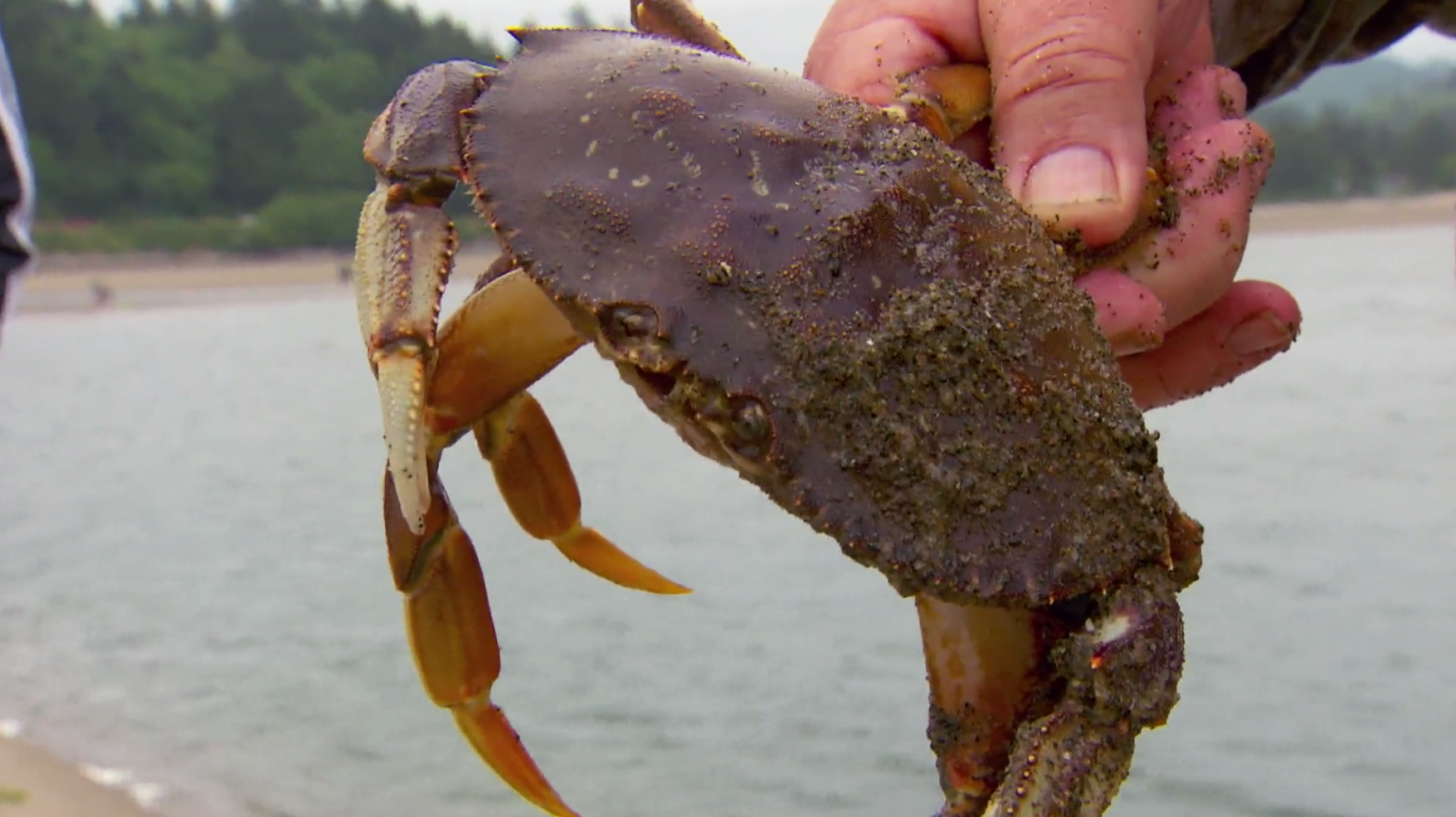Jenny Keller of Hillsboro had a question.
"Is there anything special about when you should crab according to the tide schedule?"
Bill Lackner, a clamming and crabbing aficionado from Newport, had an answer.
"Yes ... Crabbing is best during neap tides, which is a term to describe when the tidal fluctuations are minimal.”
Lackner leads “
” on Siletz Bay shore, a good spot to try a simple shore-based method of hauling in some local Dungeness crab using a folding crab trap with a hand line.
Armed with a $10 Oregon Department of Fish and Wildlife shellfish license and a crab gauge to measure whether a crab is legal size, the crowd followed him down to the shore. Lackner showed them how to bait the trap with chicken (teriyaki marinated), unwind the trap line and then wind up for an effective toss to "Crabsville."
"You want to get it as far out you can – that's where the crabs are. And be careful of the bank," he said, referring to the drop-off that forms the bay shore.
"We’ve lost several crabbers to it — including me, cell phone in-hand!”
Lackner let the trap fly and with the aid of a lull in the breeze, it splashed into the water about 40-feet off shore.
“There we go,” Lackner said as he turned to the assembly for the punchline: “Crabsville!”
For the last 10 years or so, Lackner’s experience, knowledge and salty charm have been the draw for these crabbing and clamming clinics, sponsored by the Lincoln City Visitor and Convention Bureau. That’s how Jenny Keller found him.
“We were looking for something to do this first week of summer break and I googled crabbing in Lincoln City and it took me to the Lincoln City events page,” she explained.
This first weekend of summer break is cloudy and bit windy on the Oregon coast, so when Keller’s teenage daughter Georgia Tucker winds up for her first toss, the trap’s trajectory is hijacked by the wind and ends up only about five feet from shore.
“I don’t know what I’m doing,” the embarrassed teenager giggled.
“We plan on boiling them and taking them home in the cooler,” Keller explained as Tucker went for a second try.
“Take your right arm and swing it around. There you go, get some momentum and the throw it," Keller coached.
Tucker’s second toss landed a good 20-feet off shore.
"There you go! Good job! That was awesome,” Keller cheered.

The narrow abdominal flap designates a male Dungeness crab. Only males are legal to harvest
Oregon Field Guide
Five minutes later, Tucker was ready to pull in the trap.
“Pull hard! Pull, pull, pull,” urged Lackner. “They’ll escape if you let the line go slack.” Tucker redoubles her efforts, and then wilts.
“No cigar. No crabs,” Lackner moaned. “Siletz Bay is a very good crabbing bay most of the time. Only currently it’s not.”
Lackner suspects it’s the time of year. “All the females went out into the ocean and drug the males with them so we can have crabs in the future.” He recommended September, October and December for the best crabbing, “before the seasonal rains flood the bays.”
An hour later, Tucker's dad found a new use for the cooler – a seat; the lack of success has dampened spirits and made that chilly wind a little bit harder to endure.
That's when Tucker landed a potential keeper. The women flipped the crab over to inspect the under-flap.
Male.
Then came the final test.
Tucker slipped the crab gauge over the carapace.
“Looks like that one’s legal… No?”
“He’s five and a quarter but he needs to be to five and three-quarters.”
“Oh. OK. Bye little guy,” sighed Keller.
“Yeah, go back and grow up to be a man,” quipped Lackner.
By the end of the afternoon, it was crabs 1, crabbers 0. Keller and Tucker packed up the gear.
“We threw a lot back, but it was fun just to be out there,” said Keller. Referring to Tucker, she continued, “Now I feel like I could take you out and we could just go, now that we’ve had first-hand help from someone who’s been doing it for a while.”
As for the lunch? “I think we’re going to Mo’s,” she laughed.
Before you head out to gather crab, clams, or any other shellfish, Lackner recommends consulting the shellfish hotline (1-800-448-2474) or visiting the Oregon Department of Agriculture website to make sure there aren’t any closures or cautions related to the fishery.

